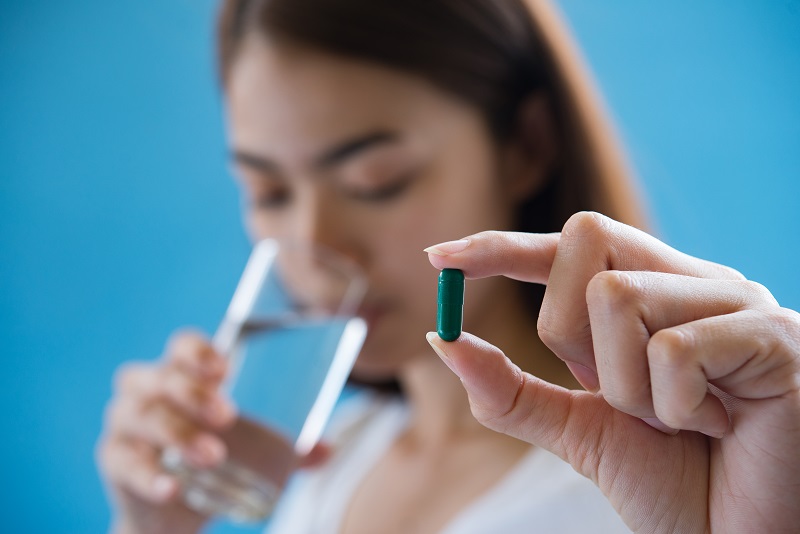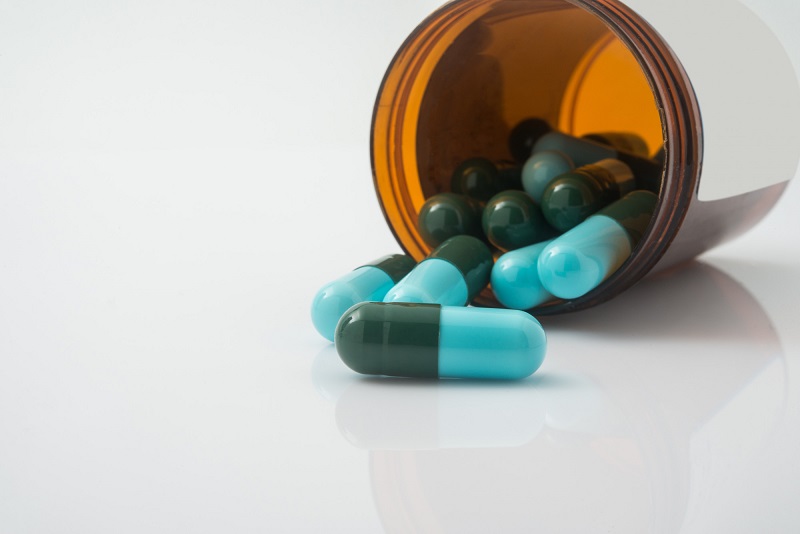In recent years, there has been a growing desire to adopt a diet that limits animal products due to various ethical and other issues. Vegans in particular are quite strict about dietary exclusions, carefully reading ingredient lists. When it comes to medicines, nutraceuticals and dietary supplements, vegan capsules made from hydroxypropyl methylcellulose (HPMC) are coming to the rescue. HPMC comes from chemically processed plant cellulose.

In addition to its use in capsules, it is also used as a food additive with the following functions:
- emulsifying
- thickening
- stabilizing
- performing the properties of a carrier
This compound can be found, among others, in gluten-free products, due to its characteristic properties. As the ingredient is a derivative of cellulose, which is a type of dietary fiber, it will behave similarly in the digestive tract. The v-caps coating dissolves rapidly in the gastrointestinal tract over a wide temperature range. For this reason, you can drink the product with both hot and cold drinks. Cellulose does not undergo digestive processes and is resistant to all digestive juices and different pH levels. It passes unchanged through the entire digestive tract. HPMC is also used in tablets with specific properties to coat the tablet to alter its release process.
The contents of hypromellose capsules may vary: powder, granulate, semi-liquid and liquid form, and even a smaller capsule. In the pharmaceutical market, a common ingredient of capsules is gelatin, which, compared to HPMC, contains more water and has hygroscopic properties. The contents of vegetable capsules are therefore more stable and have a lower risk of absorbing moisture, softening or cracking. They are also characterized by resistance to microbiological contamination.

In the case of some manufacturers, including Capsugel Vcaps by Lonza, the capsules produced have the following certificates: vegan, vegetarian, kosher, Halal and Non-GMO Project, so they take care of the religious aspects of the consumer and provide a guarantee of quality. Moreover, in the production of the capsules in question there is no need to add gelling agents or other auxiliaries. In addition, this compound is approved by European Food Safety Authority and the Food and Medicines Agency and is recognized as safe. Today’s technological possibilities allow the creation of a variety of products, including those of natural origin, by slightly processing them to achieve the desired characteristics.
Bibliography:
https://www.pharmaceutical-business-review.com/products/capsugel-vcaps-plus-capsules/
Grażyna Kubiak-Tomaszewska1 , Piotr Tomaszewski1,2, Jan Pachecka1,2: Hypromeloza w technologii farmaceutycznej kapsułek oraz innych dawkowanych postaci leku. Pediatr Med Rodz 2011, 7 (3), p. 271-276
https://vitapedia.pl/hydroksypropylometyloceluloza-e464
https://www.lonza.com/capsules-health-ingredients/pharmaceutical-solutions/hard-empty-capsules/vcap-plus-hpmc-capsules
Guarve K, Kriplani P. HPMC- A Marvel Polymer for Pharmaceutical Industry-Patent Review. Recent Adv Drug Deliv Formul. 2021;15(1):46-58.

